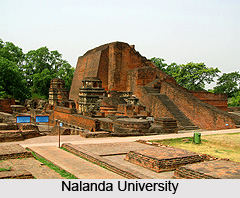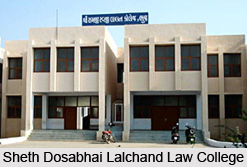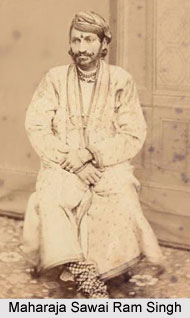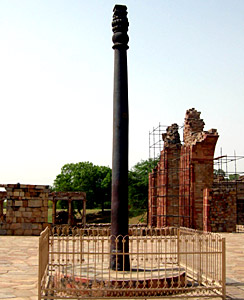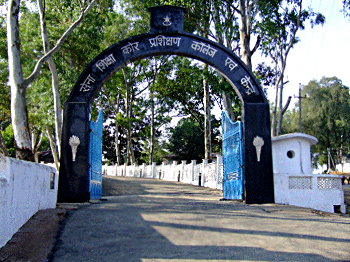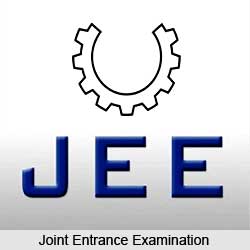 Joint Entrance Examination is the annual admission entrance test organized by the most reputed institutes of the country, the Indian Institute of Technology (IITs). Apart from these prestigious institutes, some other institutes like the Institute of Technology- Banaras Hindu University (BHU) also consider this entrance test for their admission process. Students who are willing to take admissions in the undergraduate technology programmes have to go through the Joint Entrance Examination (JEE). The JEE usually comprises preliminary examination that is the screening test and the main examination. Preliminary examination includes an objective type of paper mainly of 3 hours duration in Mathematics, Chemistry and Physics. Only those students, who qualify the basic screening test, are eligible to sit for the main examination. The main exam has separate papers in different subjects mainly in physics, chemistry and mathematics and each portion is of 2 hours duration. After clearing the JEE, the successful candidates are eligible for admissions in these institutions that offer Bachelor`s degree in a number of technological, engineering and scientific streams.
Joint Entrance Examination is the annual admission entrance test organized by the most reputed institutes of the country, the Indian Institute of Technology (IITs). Apart from these prestigious institutes, some other institutes like the Institute of Technology- Banaras Hindu University (BHU) also consider this entrance test for their admission process. Students who are willing to take admissions in the undergraduate technology programmes have to go through the Joint Entrance Examination (JEE). The JEE usually comprises preliminary examination that is the screening test and the main examination. Preliminary examination includes an objective type of paper mainly of 3 hours duration in Mathematics, Chemistry and Physics. Only those students, who qualify the basic screening test, are eligible to sit for the main examination. The main exam has separate papers in different subjects mainly in physics, chemistry and mathematics and each portion is of 2 hours duration. After clearing the JEE, the successful candidates are eligible for admissions in these institutions that offer Bachelor`s degree in a number of technological, engineering and scientific streams.
The Joint Entrance Examination (JEE) is popularly known as IIT-JEE. It is an annual college entrance test examination in India. A total of 15 colleges across the country use the mode of JEE as the sole criterion for admission to their various undergraduate degree programs. This entrance exam is organized by the IITs by following a policy of rotation. It is considered as one of the toughest and most cutthroat engineering entrance tests of the country. Achieving success in this entrance exam is often considered as the height of achievement for a candidate with a science background. The IITs/ IT-BHU/ ISM attract the brightest of minds of the nation.
Application Forms
The students can apply either online or offline. In case of online applications, they can get the forms from any of the websites of the IITs. And in case of offline applications, the students need to buy the forms along with the information brochure from certain designated branches of banks by paying a fixed amount. The notifications regarding the sale and last date of submission of application forms appear in the leading dailies of the country.
Eligibility Criteria for Joint Entrance Examination
Prospective candidates, who are appearing in higher secondary or 10+2 or any equivalent qualifying examination, can apply for provisionary admissions. The students need to secure a minimum of 60% marks in overall aggregate under a recognized Board/university. In case the grades system instead of marks, the norms set by the Joint Implementation Committee of JEE would be considered final. A candidate can have two attempts to sit for JEE. But once, any candidate join any of the IITs or IT-BHU or the Indian School of Mines (ISM), Dhanbad by clearing IIT JEE will not be allowed to appear in the JEE in future.
COURSES OFFERED
• B. Arch (Bachelor of Architecture)
• B. Des (Bachelor of Design)
• B. Tech (Bachelor of Technology)
• Dual Degree (Integrated Bachelor of Technology and Master of Technology
• Integrated M. Sc (Master of Sciences)
PATTERN OF EXAMINATION
The question papers of JEE consist of three separate sections on Mathematics, Chemistry and Physics. The questions are of objective type specifically designed to examine the comprehension, knowledge skills and analytical ability of the students. There is the system of negative marking so, any incorrect or wrong answer would lead to negative marking. After the written test, candidates are called for counseling. The candidates are required to qualify an aptitude test that is conducted at each counseling institute. The test will include two papers each of two hours duration. Students who fail to clear this test will not be eligible for admission in any of the courses.
SYLLABUS
1) JEE syllabus of Mathematics:
Algebra, Trigonometry, Analytical geometry, Two dimensions, Three dimensions, Differential calculus, Integral calculus, Vectors
2) JEE syllabus of Physical chemistry:
General topics, Gaseous and liquid states, Energetics, Chemical equilibrium, Electrochemistry, Chemical kinetics, Solid state, Solutions, Surface chemistry, Nuclear chemistry
3) JEE syllabus of Inorganic Chemistry:
Isolation/preparation and properties of the following non-metals, Oxides, peroxides, hydroxides, carbonates, bicarbonates, chlorides and sulphates of sodium, potassium, magnesium and calcium, Boron, Transition elements (3d series), Preparation and properties of the following compounds, Ores and minerals, Extractive metallurgy, Principles of qualitative analysis
4) JEE syllabus of Organic Chemistry:
Concepts, Preparation, properties and reactions of alkanes, Preparation, properties and reactions of alkenes and alkynes, Reactions of benzene, Phenols, Characteristic reactions of the following, Carbohydrates, Amino acids and peptides, Properties and uses of some important polymers, Practical organic chemistry
5) JEE syllabus of Physics:
General, Mechanics, Thermal physics, Electricity and magnetism, Electromagnetic induction, Optics, Wave nature of light, Modern physics, Freehand drawing, Geometrical drawing, Three-dimensional perception, Imagination and aesthetic sensitivity, Architectural awareness
Given the priority and importance attached to the Joint Entrance Examination, the IITs follow a rigorous procedure. Marks obtained in total including all the sections determine the rank of the students. The reputed institutes of the country use the scores and overall result of the JEE to short-list the candidates for subsequent part of the selection procedure that involves group-discussion and personal interview.
Joint Entrance Examination (JEE) is the stepping stone in the process of seeking admission to the most renowned institutes of the country and towards making a strong career in the field of technology.
